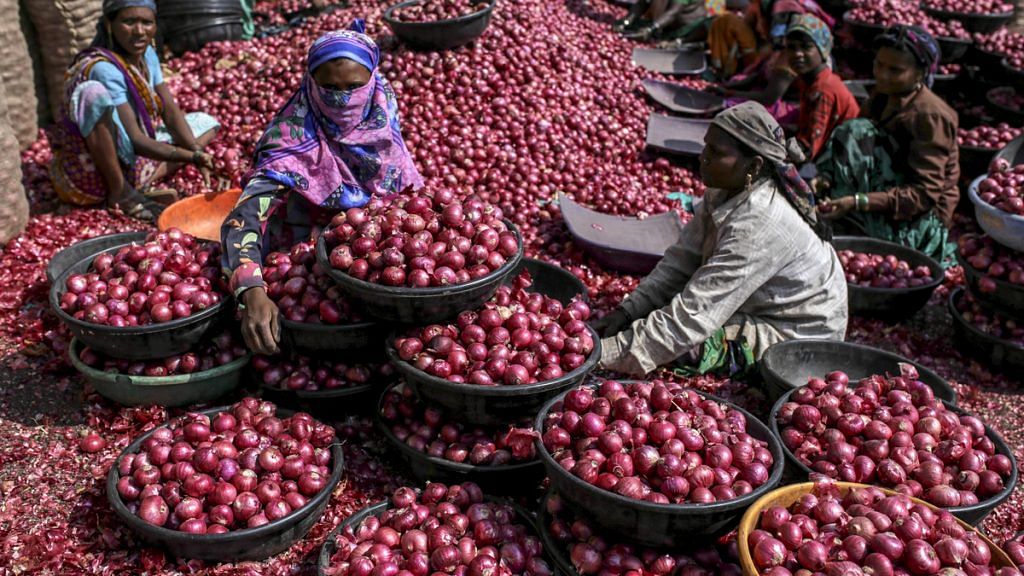The rise in consumer price inflation (CPI) in the weeks before the presentation of the Union Budget has raised concerns that it could influence announcements at a time when the Indian economy desperately needs a fiscal boost.
This rise in inflation is caused by an increase in food prices, but is expected to be transitory. Such inflationary pressures should not prevent the government from giving a fiscal boost to generate demand.
For long-term debt sustainability, the government should initiate debt market reforms.
RBI panel has to look at inflationary pressures
The recent rise in food inflation has resulted in an increase in headline inflation. In December, CPI rose by 5.5 per cent over the last year, driven mainly by vegetable prices, which grew at 36 per cent in November, the last data available. Whenever vegetable prices have grown sharply in the past, there is a supply response, and they come down in a matter of months.
We have seen high vegetable price inflation episodically in the last five or six years, when overall inflation has been roughly stable.
The increase in headline inflation has come at a time when there is a fall in consumption and investment demand in the economy. In addition to the supply response, low demand conditions, low liquidity and tepid credit growth don’t make for an environment of high inflationary expectations.
The reasons for the credit deceleration may be due to the overall health of the banking sector, but that is not relevant for the Reserve Bank of India’s Monetary Policy Committee (MPC). The MPC has to look at what are the inflationary pressures, because its decisions on interest rates are expected to have an impact on inflation a few quarters later, not instantly.
Also read: To realise NIP worth Rs 102 lakh crore, Modi govt needs Indians to save long-term
Implications of inflation scenario for Budget
There are two important considerations for the Budget. The first is the macroeconomic environment, where growth has slipped to an estimated 5 per cent, mainly due to a decline in investment and consumption demand.
The second is that the fiscal deficit is already higher than the target. Indeed, the deficit may be greater than the official fiscal deficit numbers.
While normally, economists would have argued that if there is a demand slippage in the economy, the government should boost demand by cutting taxes and by increasing expenditure. But when the fiscal deficit is already high, this would make it even higher.
In such a situation, there is no agreement between economists about whether the government should worry about the fiscal deficit and stick to its targets, or whether it should allow a fiscal slippage and try to boost demand through an expansionary budget.
Many considerations are discussed when deciding on the fiscal deficit. Among the most important is whether the fiscal expansion can be inflationary. By increasing demand, higher fiscal deficits can put an upward pressure on demand.
It is in this context that it is important to understand the nature of the current inflation. If the higher inflation rate, which is above India’s target of 4 per cent CPI inflation, was permanent in nature, it would mean a higher risk that expansionary fiscal policy could lead to further inflation. However, if the increase in inflation was transitory, this risk would be low.
To distinguish between permanent and transitory inflation, central banks don’t just look at the headline number, but at core inflation. They typically measure core inflation by removing the most volatile elements from the basket. Food is normally excluded.
When we look at the present inflation in India, we find that while CPI has indeed risen, core inflation has not, and remains below 4 per cent.
Normally, this discussion guides monetary policy. But it is important to note that if the argument is that there should be no fiscal expansion because it could be inflationary, the same logic should apply. As long as the rise in inflation is transitory in nature, it should not constrain expansionary fiscal policy.
How to address such issues
There may be other considerations in the decision about whether to undertake fiscal expansion or not. These could be if the country does not do counter-cyclical fiscal policy, and runs large deficits even when it is expanding.
There is fear that if there is a larger deficit now, it may increase government debt and interest payments, and could create long-term fiscal stress.
A good and sustainable mechanism to address such issues is to set up a fiscal council and develop a bond market, which sends signals to the government when it follows unsustainable policies. This can set up mechanisms for debt sustainability in the long run.
The coming Budget can take a multi-pronged approach. It can have an expansionary budget for 2020-21, while at the same time, it can set up a fiscal council, a public debt management agency, and reform the bond market. Both short-term and long-term steps are necessary.
Also read: There’s hope for Indian economy if it becomes No. 1 priority of Modi govt instead of CAA
The author is an economist and a professor at the National Institute of Public Finance and Policy. Views are personal.
